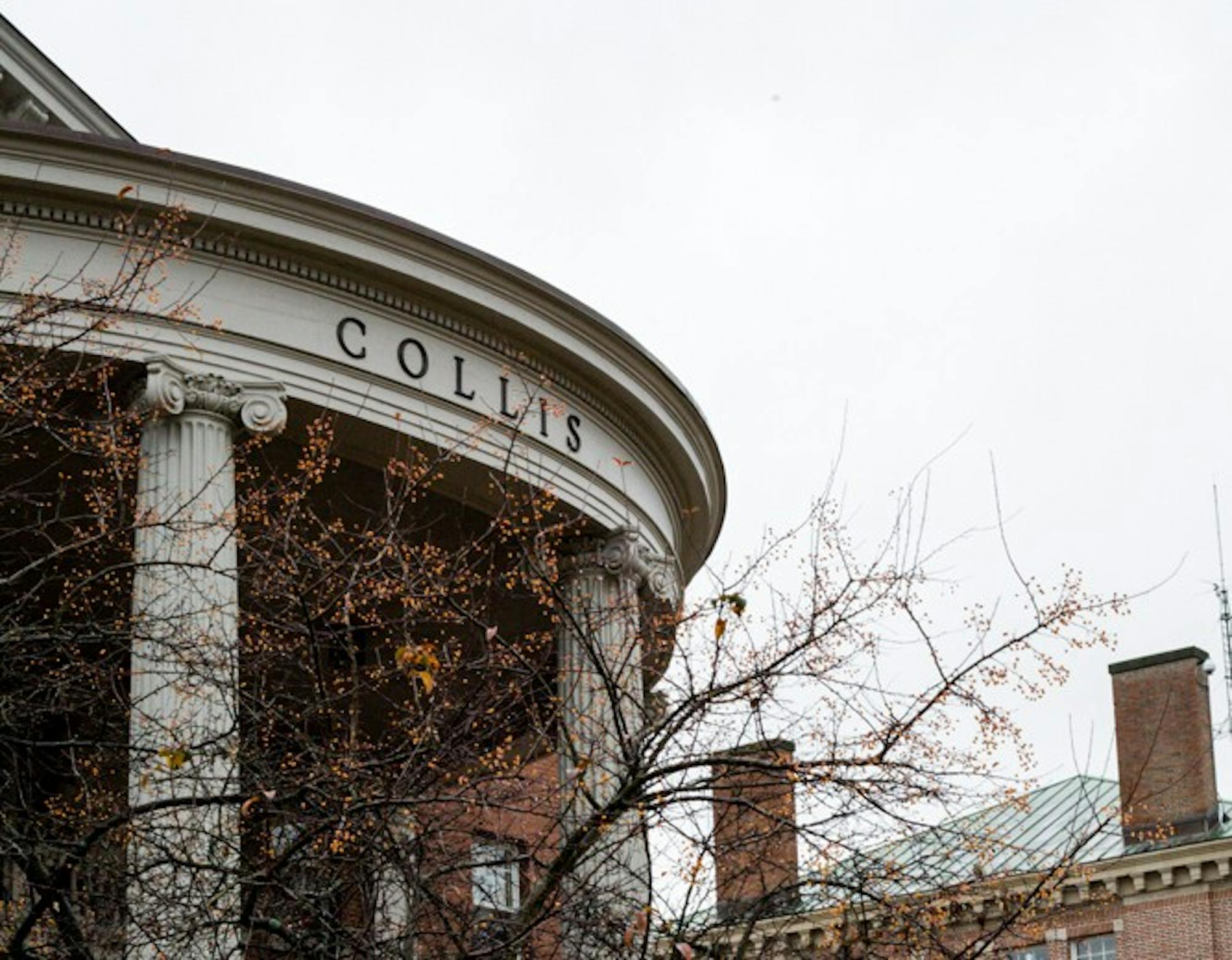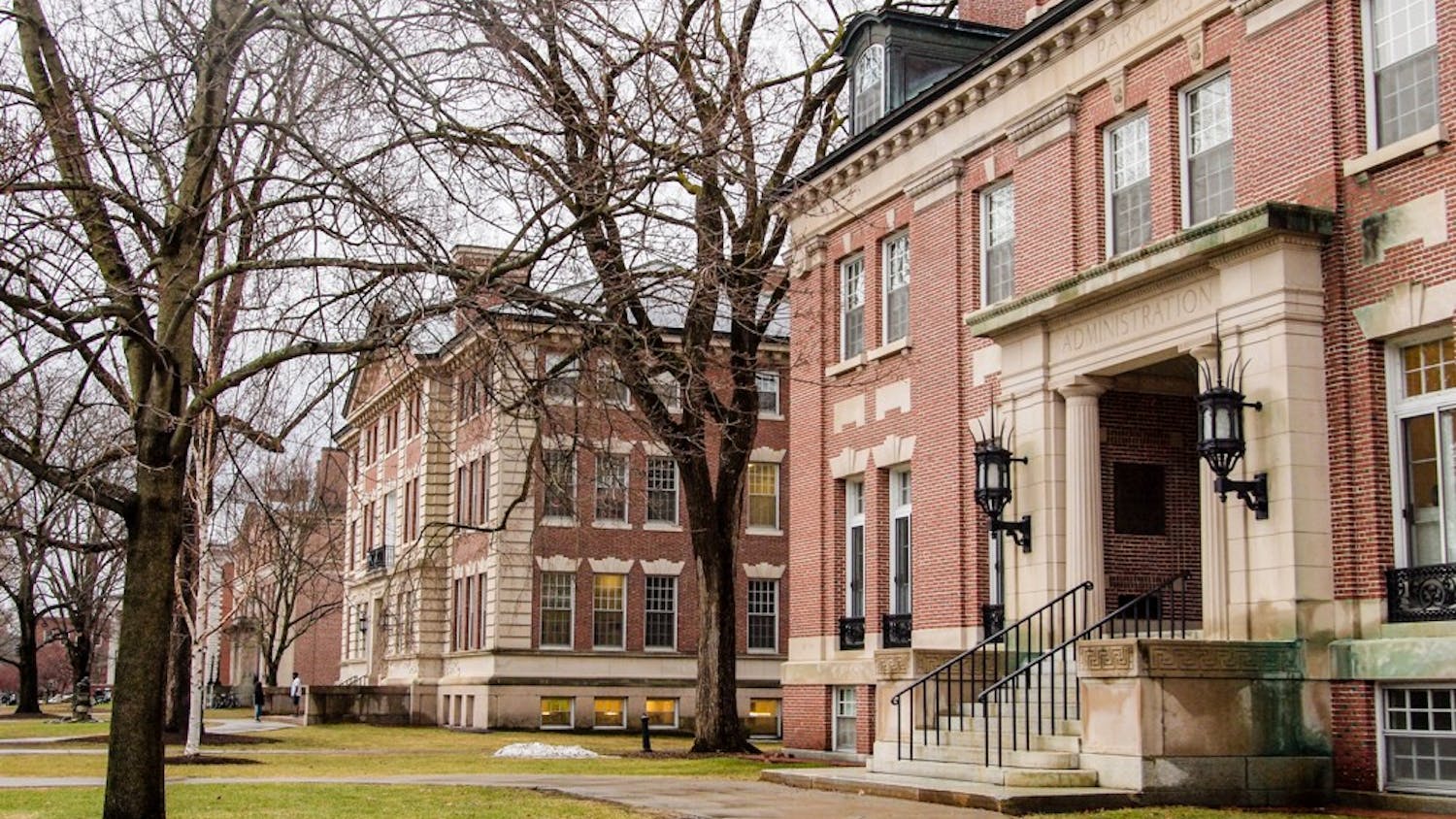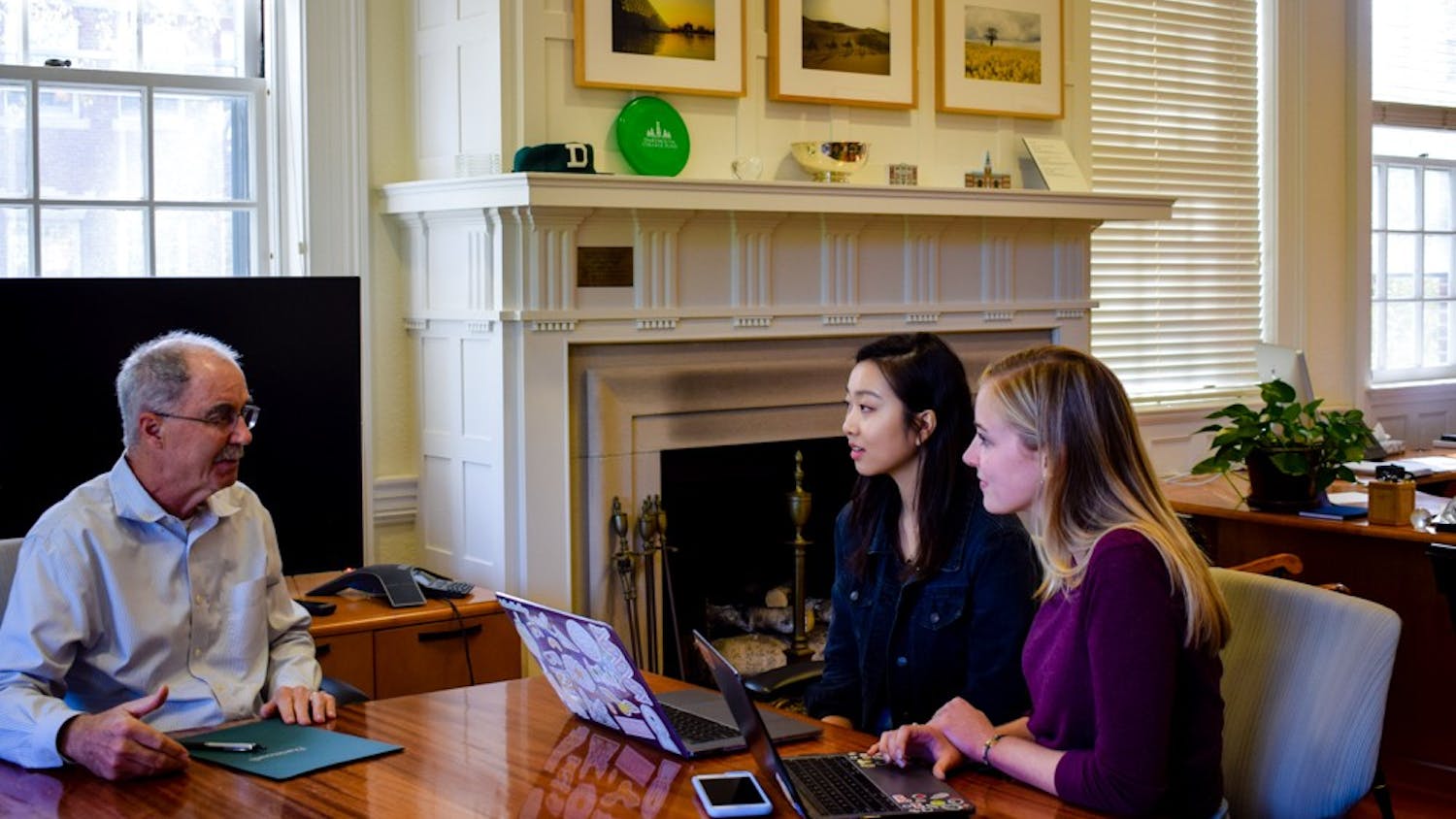This article is featured in the 2020 Commencement special issue.
The purpose of the Student Assembly is to serve as a liaison between the student body and members of the administration, a mission that requires the organization to be visible and active on campus. From launching a food voucher program to advocating for eased dorm access restrictions, SA has taken strides to become more engaged in student life in recent years. As another cohort of student leaders concludes its tenure in SA, seniors, current SA leaders and College administrators reflect on SA’s evolution over the past four years, as well as the challenges they still face.
According to SA project coordinator Gyan Moorthy ’20, SA has not always played a significant role in student life. Moorthy said that during his freshman and sophomore years, very few students would turn to SA if they had an issue they wanted addressed.
Outgoing SA president Luke Cuomo ’20 echoed Moorthy’s statement.
“SA, when I [was an] underclassman, was a very quiet and not very well-understood organization on campus,” Cuomo said. “It didn’t really have much of an impact.”
Cuomo said that SA has changed dramatically in the past two years, due in part to the leadership of previous SA president Monik Walters ’19 and vice president Nicole Knape ’19.
Mary Versa Clemens-Sewall ’20 praised Walters and Knape for bringing new life to SA.
“Until my junior year, SA seemed mostly a popularity contest,” Clemens-Sewall said. “I can’t tell you the names of the people who were president and vice president of SA my first two years, but I was really excited to see that [Walters was] running because I knew that she was someone who thought critically about what would make Dartmouth a more inclusive community.”
Clemens-Sewall said that Walters and Knape made an impact on campus by pioneering the Dartmouth Coach voucher program and a program to combat food insecurity on campus during winter break in 2018.
Moorthy said that current members of SA have “revitalized the institution.” He referenced amendments to the SA constitution that dictate responsibilities for SA senators and office hours for the president and vice president.
Moorthy added that he believes students are now much more confident in SA than they were in previous years. “I think now people say, ‘Hey, look, no matter what my view is, I can talk to someone in SA,’” he said.
Outgoing SA vice president Ariela Kovary ’20 echoed these sentiments about SA’s increased activity, saying that prior to her role as vice president, she had little knowledge of what SA did.
“Being in the role that I am, I know everything about [SA] — the external perspective as well as the internal one — and it’s great to see what it has become,” Kovary said.
Kovary added that SA’s renewed presence on campus is reflected in the amount of student interest in the most recent SA election, which took place last month.
“A lot of people [were] advocating to become a senator, which is not something we’ve seen in the past because usually a write-in name [was] elected or only one person [ran] and they [were] undisputed.”
Dean of the College Kathryn Lively also felt that the most recent election represented SA’s increase in visibility, noting that this election had the second-highest voter turnout of any SA election to date, despite its remote format.
Dylan Giles ’20 said that over the course of his four years at Dartmouth, he began to pay more attention to SA.
“I don’t know if that means that their presence on campus has increased, but I’ve been more exposed to what’s happening,” he said.
Cuomo hopes that students will continue to take SA seriously in future terms, especially given what it has been able to accomplish recently.
“Students shouldn’t discount or dismiss SA as an organization,” Cuomo said. “I think there’s a lot of natural skepticism towards student government in general, but I think our record this year and the circumstances that [the College] will face moving forward demonstrate that student government can impact and influence change at Dartmouth.”
According to Cuomo, some of SA’s achievements during 2019 and 2020 included extending the Dartmouth Coach voucher program that Knape and Walters started, improving community space and dorm access, hosting two voter registration drives, collecting textbooks to increase the library’s supply, purchasing hand sanitizer and hand warmers for students, working with Zipcar to get two extra Zipcars on campus, securing physical copies of The New York Times and The Valley News to put in the Collis Center, working to create a “syllabi database” and sponsoring events for several student organizations.
Kovary added that a large portion of SA’s work focuses on “little projects that are not seen by the student body but are eventually noticed because they just kind of pop up and they’re like, ‘oh, that’s, that’s a wonderful thing.’” Kovary also emphasized SA’s work to build an open line of communication with the administration.
Lively said that she has enjoyed working alongside members of SA during her past two years as Dean of the College and said that she is often moved by their dedication.
“I’m just really impressed by how service-oriented our students are and how deeply committed they are — even on their way out as seniors — to improve the quality of student life and to improve the nature of the community,” she said.
According to Cuomo, he and other members of SA have been in constant communication with the administration throughout the past term. Cuomo added that in order to facilitate the flow of concerns between students and the administration, SA has compiled questions from students and released notes on College President Phil Hanlon and College Provost Joseph Helble’s weekly live discussions.
Lively praised Cuomo and Kovary for their leadership, saying that they have “really shined in shepherding student perspectives into administrative decisions regarding COVID-19.”
Cuomo said that because the student body is so dispersed this term and there are thus no direct lines of communication between students and administrators, members of SA act as an intermediary between the two.
Cuomo also cited student concerns over a lack of student representation in administrative decisions as one of SA’s considerations this term.
“There’s a lot of consternation amongst the student body because there’s a sense that the administration isn’t fully taking into account student voices, which is a legitimate basis for criticism,” Cuomo said. “But I will say that Dean Lively, Provost Helble and President Hanlon have all been extremely receptive to our questions and to our complaints. They’re doing their best to consider the student perspective when making decisions.”
Emma Miller ’19 said that she thinks SA has done a good job of asking the administration questions and being persistent during the COVID-19 pandemic.
Cuomo said that there were projects, such as the syllabi database, that he and Kovary had hoped to complete during their time as SA president and vice president, but that have been put on pause due to the pandemic.
“Advocating for students in reaction to spontaneous crises is not easy, but it provides the greatest opportunity to actually make a tangible difference on the lives of students,” Cuomo said.




